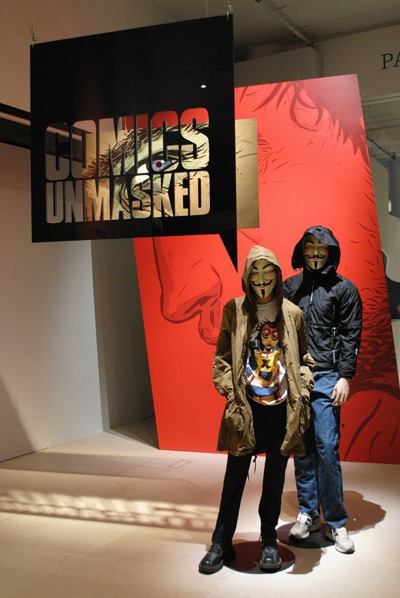
Kasia Kowalska reports from Comics Unmasked: Art and Anarchy in the UK
“Have we blown your mind?” asked Paul Gravett, the UK’s leading comics expert, at the launch of Comics Unmasked. Together with Adrian Edwards of the British Library and the comics writer John Harris Dunning, he has curated the biggest exhibition of comics in the UK to date.
The simple answer to his question is: Yes.
The exhibition, which features more than 200 exhibits and took two years to prepare, is unapologetic about its ambitions. “There’s a lot of controversial, potentially alarming content here, deliberately to push the boundaries,” said Gravett.
It is organised thematically into six areas, including different sections on sex and politics. Dunning, writer of the comic Salem Brownstone, explained why: “We approached things like politics, sexuality, altered states, social issues, to really highlight the fact comics are a medium that can convey very powerful messages.”
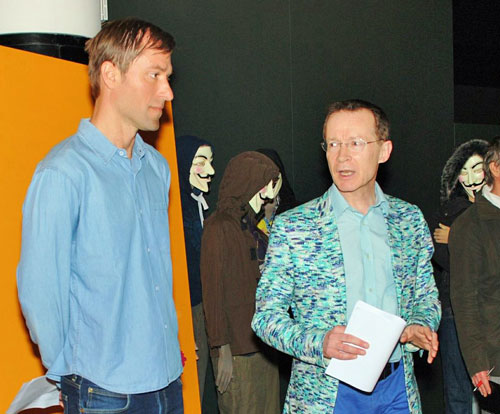
Every section explores these themes through the often troubled history of comics, including looking at the anti-comics movement that led to the formation of the Comics Code in 1950s America. A similar panic happened in the UK.
“The very first exhibition of comics in the UK was an exhibition against comics,” Gravett said. “It was meant to alarm and horrify the opinion formers and parents. Ironically, they also toured a film strip around the country. They took it to schools and we’re convinced that a lot of people didn’t know about the comics before that.”
The exhibition aims to give comics their rightful place as a literary genre and to give the authors the recognition they deserve. “The show is put on to give creators the respect that’s due them. Because that’s really something, I don’t think, that has happened enough in this country,” said Dunning.
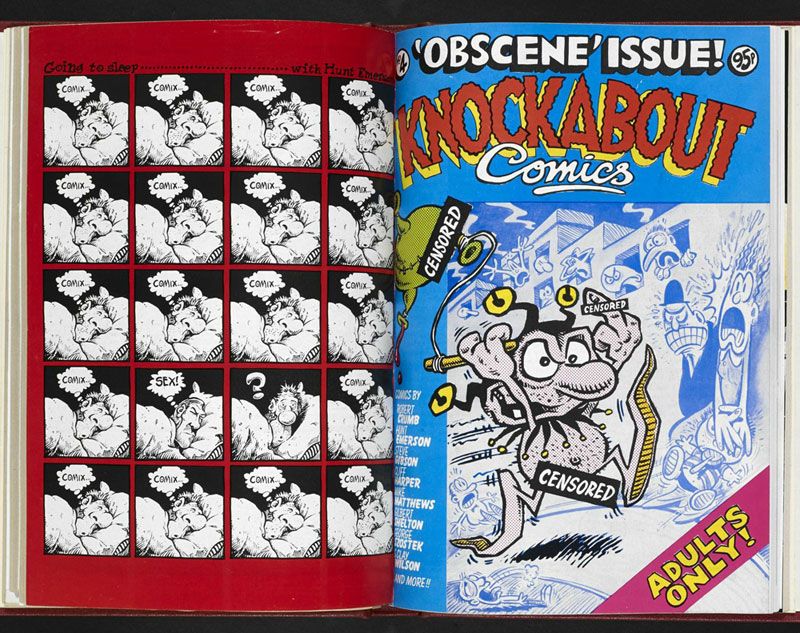
Dave McKean, creator of Batman: Arkham Asylum and the exhibition’s artistic director, is one of the artists whose work has put British comics creators on the map. Dunning said: “What might surprise certain members of the public is that those are American characters but they’re very much owned by British talent. British comic creators are responsible for the current popularity of superheroes.”
The most controversial part of the exhibition — Let’s Talk About Sex — aims to chart the evolution of erotic comic art and candidly explores complex themes of sexuality. Comics are often associated with men, and sometimes with men who refuse to grow up, yet comic art has been the ideal medium for women creators.
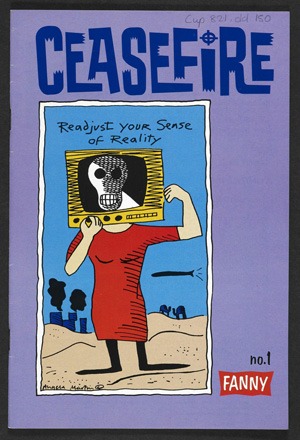
Throughout its history it has been considered subversive and has often fallen under the radar of those occupying and regulating the mainstream of creative writing. It allows for an unbridled freedom of expression and can often blossom unchecked.
“Thematically, what is interesting is that we find quite a lot of female creators”, said Dunning. “One could believe that this is a very male area but we’ve discovered it’s not really the case.”
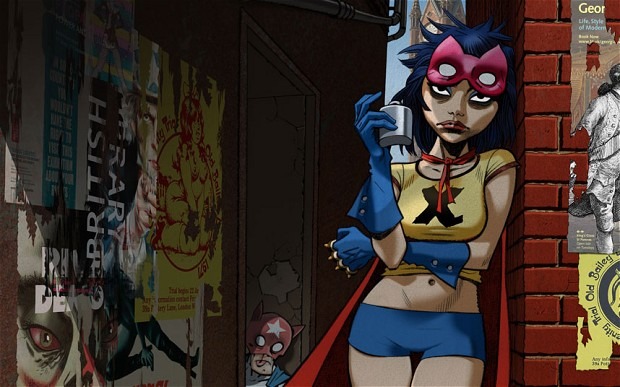
The show’s cartoon muse is Lawless Nelly, above, created especially for it by Jamie Hewlett (Tank Girl). She has a literary connection, being named after Ellen Lawless Ternan, mistress of Charles Dickens, “a half forgotten but very powerful woman in the background,” according to Roly Keating, chief executive of the British Library.
What also preoccupies the curators is the future of comics. Their intention is to throw the gauntlet down to the next generation.
“That’s the message: make comics, don’t just read them”, said Gravett. “The final frontier is the internet. Interactive hyper-comics, that’s the next form.”
Comics Unmasked presents its subject as a serious, legitimate and relevant genre. It marries the beauty and draughtsmanship of the art form with storytelling and utilises it as a vehicle to deliver a message.
Jonathan Ross, TV presenter and comics fan, said at the opening: “It’s a remarkable experience waiting for you inside. It still amazes me, and shocks me somewhat [that] we don’t yet have a proper literary appreciation of the incredible work that’s been done here, some of which is as sophisticated, more interesting and more bold than you would find in straightforward prose or fiction.”
Comics Unmasked: Art and Anarchy in the UK is at the British Library until 19 August
Photos by Kasia Kowalska and the British Library
